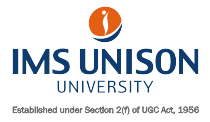One Week Faculty Development Programme - Day 2
One Week Faculty Development Programme - Day 2
SPEAKER 1: Prof. (Dr.) Gurdip Singh
Topic- Climate Jutice
Throughout the session, the speaker has laid emphasis on a number of important conventions and conferences which played an important role in documenting rules for climate change. Kyoto Protocol being one of them, he explains that it operationalizes the UN Framework Convention on Climate Change by committing industrialized countries and economies in transition to limit and reduce greenhouse gases (GHG) emissions in accordance with agreed individual targets. The Kyoto Protocol is based on the principles and provisions of the Convention and follows its annex-based structure. The speaker emphasized that it only binds developed countries, and places a heavier burden on them under the principle of “common but differentiated responsibility and respective capabilities”, because of their high contribution in the GHG emissions in the atmosphere. This however attracted a lot of tension from the developed countries.
The speaker further highlighted the key features of the Paris Agreement. He points out that its goal is to limit global warming to well below 2, preferably to 1.5 degrees Celsius, compared to pre-industrial levels to be achieved mid – century. He points out that The Paris Agreement is a landmark in the multilateral climate change process because, for the first time, a binding agreement brings all nations into a common cause to undertake ambitious efforts to combat climate change and adapt to its effects. The session ended by creating immense curiosity interest among the participants so much so that the there were plenty of question put forth for the speakers.
SPEAKER 2: Prof. (Dr.) Devendra Pathak
Topic- Rise and Future of E- Commerce
The speaker began his session with pointing out what e- commerce is, to which he explained that electronic commerce refers to the activity of electronically buying and selling goods and services over the internet. He then highlighted the growth statistics of e commerce usage in India which is expected to grow to US $ 200 Billion by 2026 from US $38.5 Billion as of 2017. This is most likely triggered by increased internet bandwidth and smartphone penetration. A brief history of the e-commerce was also put forth which led to better insight of the industry’s growth in terms of statistics. The traces of e commerce were witnessed between 1971-1983 but it got a lift when Amazon.com was launched by Jeff Bezos in 1995 irrespective of the fact that it was merely an online book shop at that time. The speaker has shared striking statistics regarding the growth of internet usage as well as the growth of various e- commerce platforms in India. Besides, a global increase in online transaction is also expected to cross US $75 Trillion by 2025. Along with this a around 25 applications were also introduced which are associated with e-commerce world but is often blanketed. Another important aspect of the discussion was the role of Covid-19 in the growth of e-commerce industry. During lockdown there was a tremendous growth in e commerce services which gave a sudden lift in its demand. In terms of future of the industry various estimated statistics were discussed, and it was emphasized that the establishment of fibre optic network for an improved Internet facility in India is likely to make India the second largest e commerce in the world after China.
SPEAKER 3- Prof. (Dr.) B. L. Sharma
Topic- Human Rights: Challenges
The speaker began with making an important point that Human Rights are an aspect of international law thus, it must be read in respect of International Laws. Along with this he said a phrase to the topic and rephrase it as Human Rights and International Challenges. The speaker discussed various instances of human rights persecution especially relating to that of women and explained how some Islamic and western countries are not ready to be judged on the internationally standardized human right practices as they want to put their religious and cultural norms on a higher footing. The speaker has highlighted several impacts of globalization and individualization on Human Rights jurisprudence. He further discussed the tendency existing in the world which is a repulsion to accept the universalization of Human Rights. Most of the arguments put forth by the Islamic countries in this behalf is that UDHR belongs to western world and are not built to suit their culture, this however shows their unacceptance towards a standard uniform human right practice. Besides the Islamic countries the speaker also highlighted the loop holes and excuses made by Western countries in order to escape from accepting the standard international human right practices.

